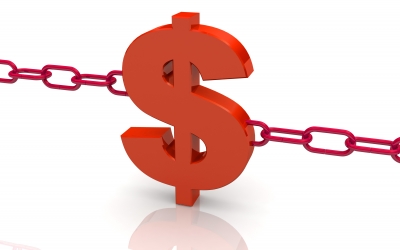If there are errors on your federal income taxes, you may have adopted the "wait it out" approach. It's true that the Internal Revenue Service has a maximum of 10 years to collect on your back taxes, so if you're patient (and fearless) enough, you might be able to outlast the agency's power to collect. In the meantime, though, the IRS may have taken drastic measures that could negatively affect your financial livelihood for years. Instead, why not learn about a few ways to pay off your back income taxes?
How to Pay Off Your Back Income Taxes
What are Franchise Taxes?
If you're not involved with a small business, you may never have heard of franchise taxes. However, these taxes are a vital part of the revenue streams of many U.S. states. The value of these taxes may be cold comfort for the business owners who are stuck with the tabs, though. But if you've been hit by the price of franchise taxes, it may be helpful to remember what these taxes are and how they benefit the state economy.
How Can You Remove an IRS Bank Levy?
An IRS bank levy is the worst nightmare of many U.S. taxpayers. This action gives the IRS unprecedented access to your personal bank account, putting your very financial security at risk. Even worse, once the levy is imposed, it can be extremely difficult to get it removed. Despite these challenges, though, it is possible to remove an IRS bank levy.
How to Settle Back Income Taxes
If you're in debt to the Internal Revenue Service, the worry of owing back taxes may be eating away at your peace of mind. Taxpayers who owe large sums of money to the IRS have to concern themselves with the possibility of tax liens, tax levies, and potential legal action. Instead of dealing with the stress of being in debt to the IRS, it's much better to find ways you can settle your back income taxes. Doing so quickly will help you settle your account and sleep better at night.
Can the IRS Seize Your Assets?
Most taxpayers have heard horror stories about the IRS taking possession of someone's assets and they may fear that this could happen to them. While it's true that the IRS has the authority to seize individual assets, this only happens in situations where a taxpayer becomes seriously delinquent on their account and doesn't take any steps to clear up their outstanding tax balance. In these cases, the agency may issue a tax lien or a tax levy. How can you prevent the IRS from seizing your assets?
How to Organize and Store Tax Documents
Once you've completed your income tax return and filed it with the IRS, you might think that you're done with your taxes for the year. While you're finished reporting your tax information, you're not finished with those documents you used to prepare your forms. In fact, you may need to hold onto that paperwork for several years. However, keeping all of those tax documents organized in your home doesn't have to be a hassle. Here's how to organize and store tax documents.
Income Tax Advice for New Businesses
Are you in the process of starting up a new business? You're probably feeling both excited and overwhelmed at the prospect of having your own company. While you might be optimistic now, though, it's wise to prepare for the inevitable financial recordkeeping you'll have to undertake along the way. Part of this is beginning your company on the right financial foot at the very start. Doing so will make your reporting at income tax time much easier. Here are a few income tax advice pointers for new businesses.
Requirements for Estimated Taxes to the IRS
Estimated taxes are often described as a bit of headache for American taxpayers. However, most individual taxpayers are not required to remit these taxes during the year. The IRS does, though, require some entities and individuals to submit estimated taxes if they meet certain conditions. If you are wondering whether you will have to pay estimated taxes to the IRS, here is an overview of those qualifications and a review of how to remit the taxes due, if necessary.
Do You Need an Employer Identification Number (EIN) from the IRS?
If you own and operate your own business, you might be familiar with an Employer Identification Number, abbreviated as an EIN. This term is often used on several IRS business forms such as a Schedule C, a W-9, and other forms. Many small businesses don't need to have an EIN, but some do, depending on their industry and their staffing situation. How can you know if you need an employer identification number? If you need an EIN, how do you go about getting the IRS to issue you one.
Can You Settle Your Taxes with an Offer in Compromise?
Do you owe a large amount of back income taxes to the IRS? If you do, you might have heard about the "offer in compromise" arrangement, which may allow you settle your tax debt for far less than the amount you currently owe. The sticking point, though, is the difficulty of meeting the stringent requirements that will qualify you for an offer in compromise. When you learn more about this option works, you'll be able to find out if you can settle your taxes with an offer in compromise.
SUBSCRIBE VIA EMAIL
POSTS BY TOPIC
- Tax Tips and Help (285)
- IRS Collections (121)
- IRS Audit (72)
- Tax Credits and Deductions (70)
- Tax Resolution (62)
- Business Taxes (54)
- Back Taxes (48)
- Wage Garnishment (21)
- Tax Levies (19)
- IRS Payment Plans (15)
- Tax Liens (14)
- Offer in Compromise (9)
- Unfiled Tax Returns (9)
- IRS Tax Attorneys (7)
- Asset Seizure (6)
- Tax Evasion (6)
- Criminal Tax Defense (4)
- Innocent Spouse Relief (4)
- Alimony (1)











